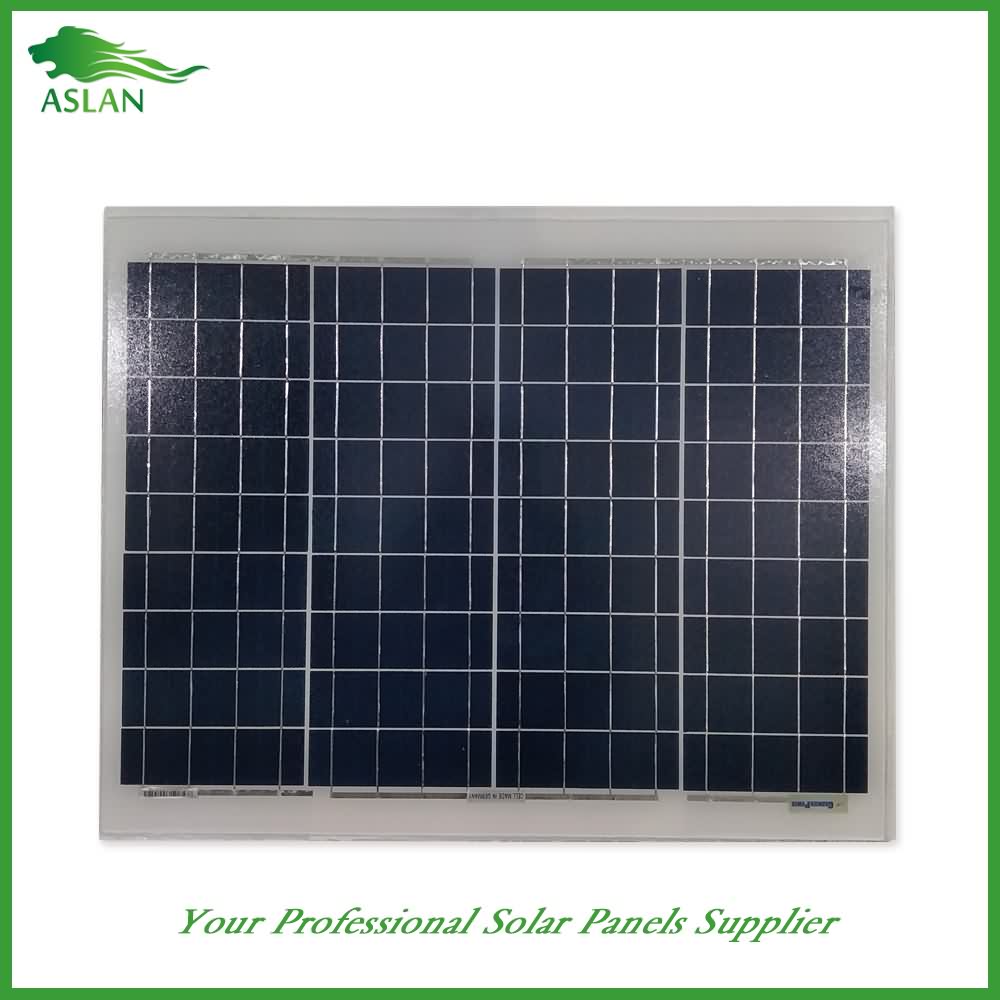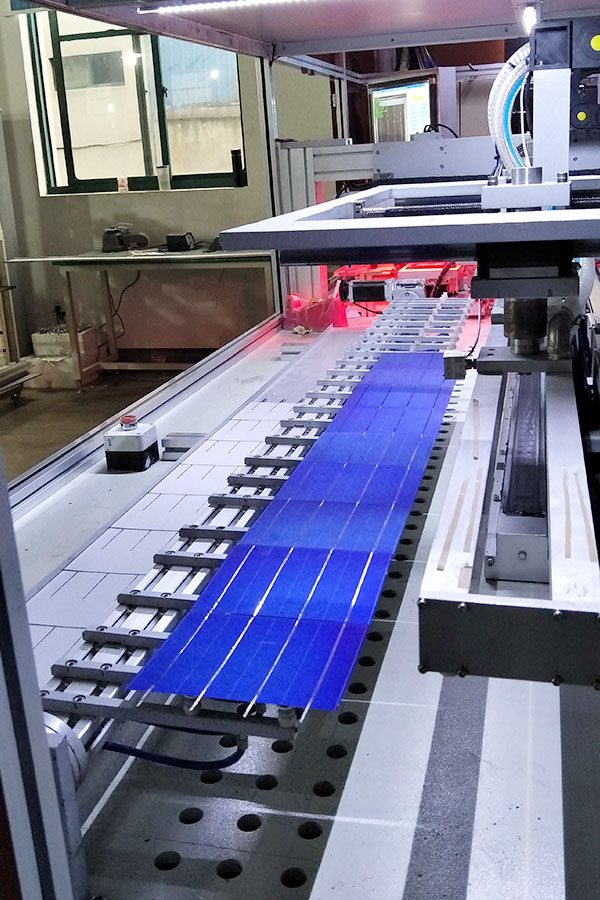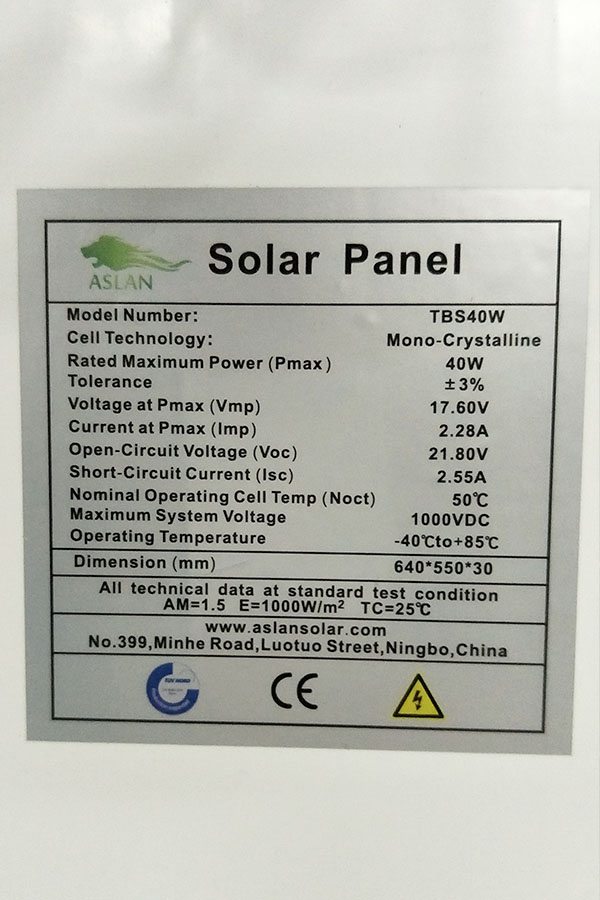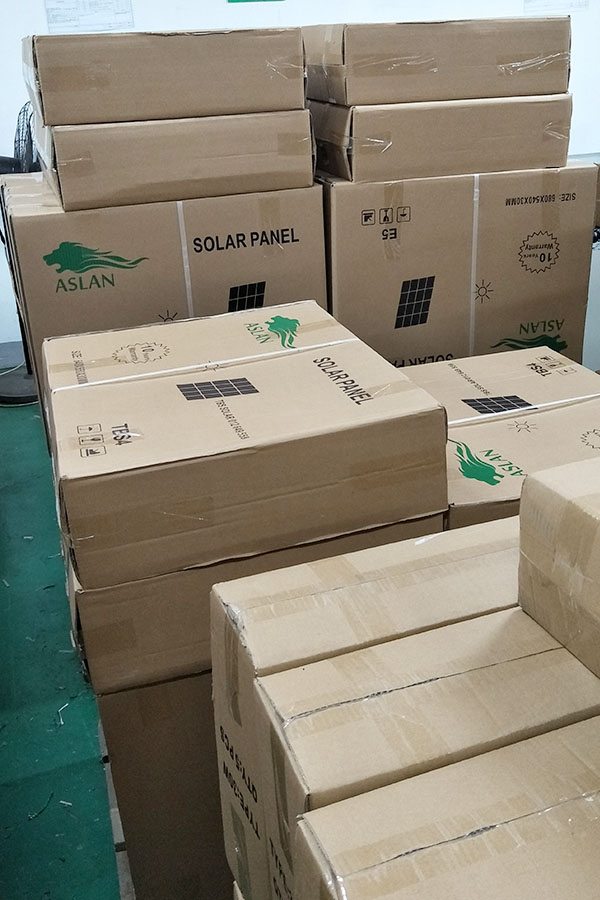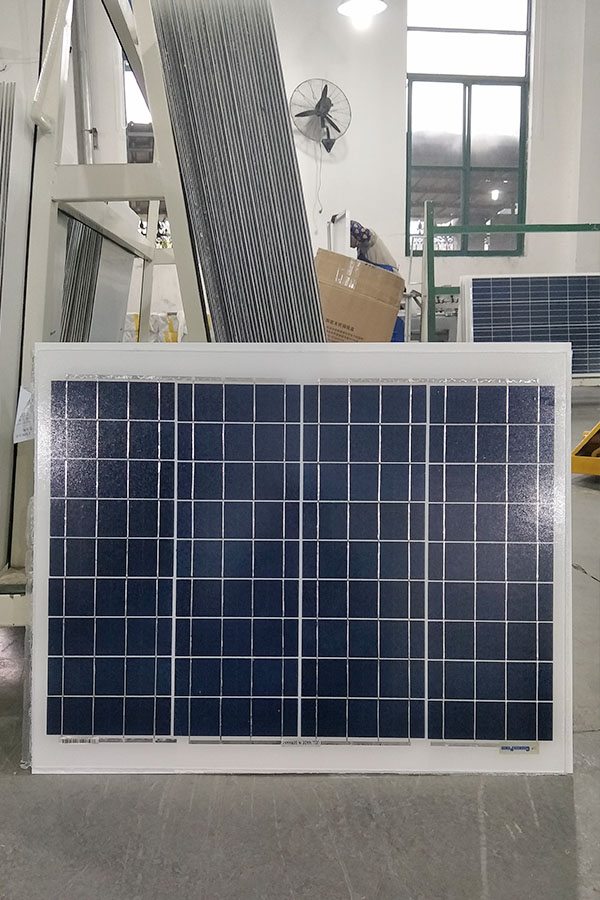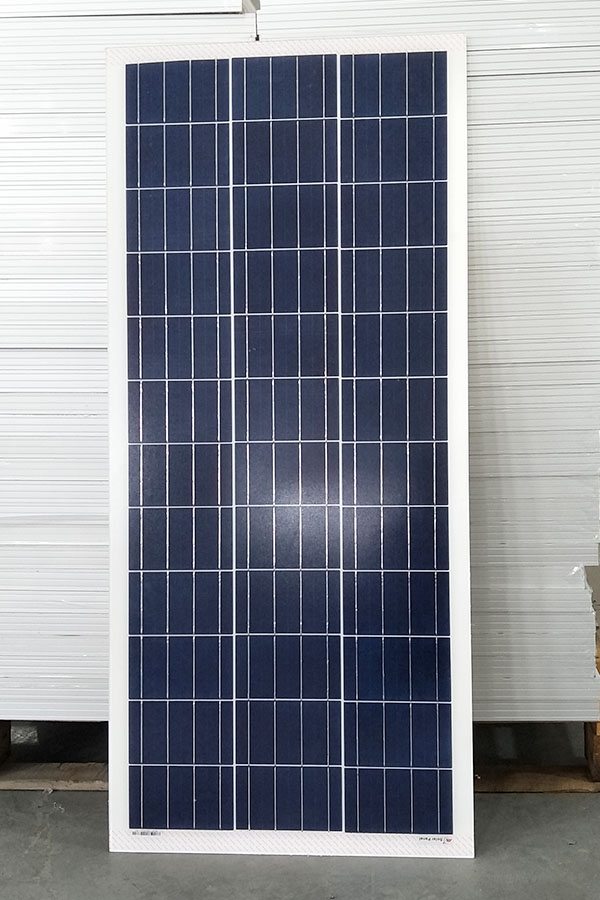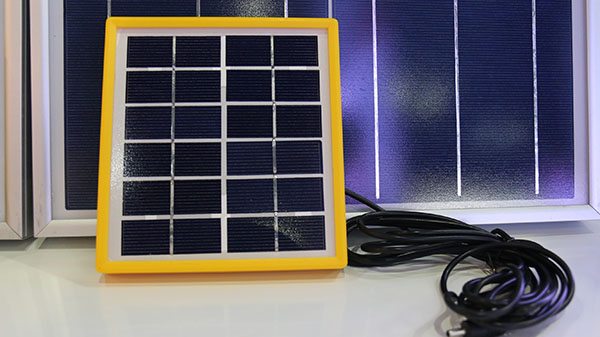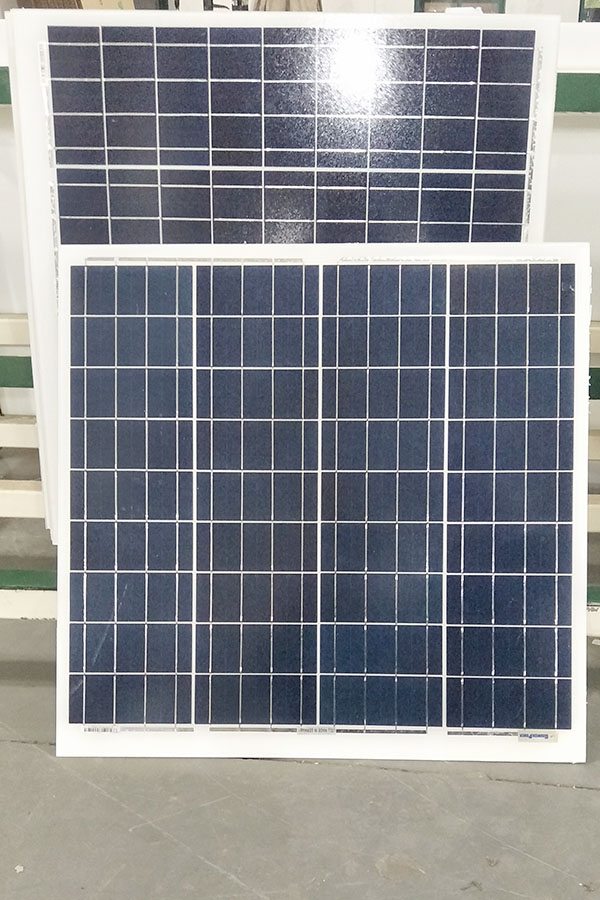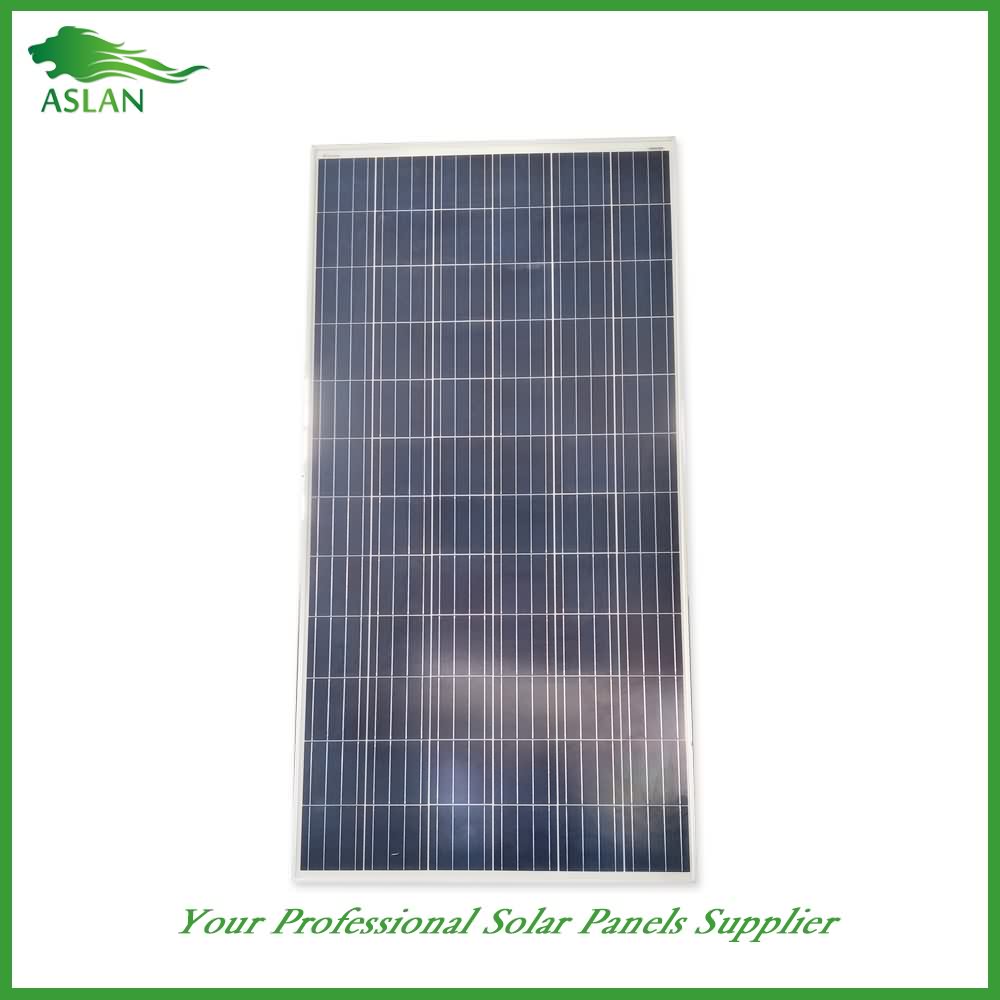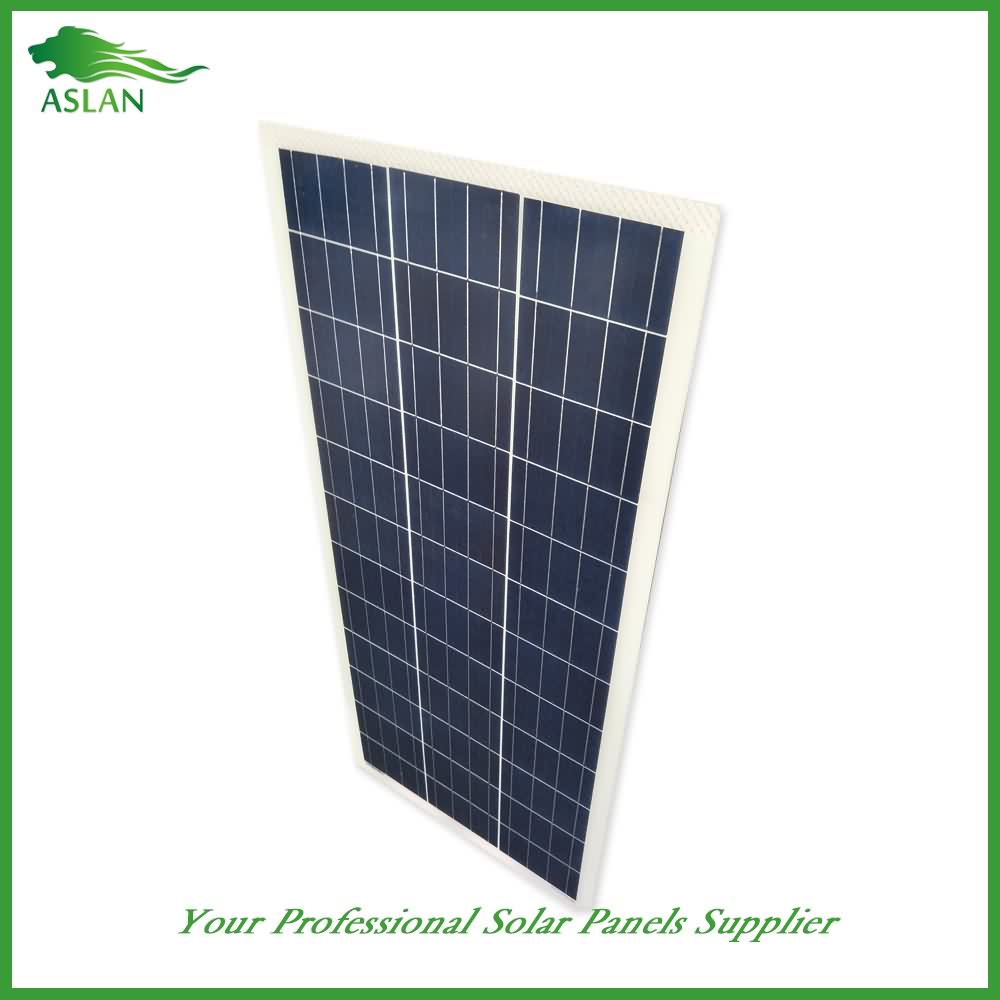8 Year Exporter Poly-crystalline Solar Panel 40W New Zealand Manufacturers
Short Description:
It is a good way to improve our products and service. Our mission is to develop creative products to customers with a good experience for 8 Year Exporter Poly-crystalline Solar Panel 40W New Zealand Manufacturers, We welcome you to visit our factory and look forward to establishing friendly business relationships with customers at home and abroad in the near future.
Poly-crystalline Solar Panel 40W
Technical parameter
Maximum Power(W) 40W
Optimum Power Voltage(Vmp) 17.35V
Optimum Operating Current(Imp) 2.31A
Open Circuit Voltage(Voc) 21.16V
Short Circuit Current(Isc) 2.53A
Mechanical Characteristics
Cell Type Polycrystalline 156 x 52mm
No of Cell 36 (4x9pcs)
Dimensions 670x420x30mm
Weight 4.0Kg
Front Glass 3.5mm,High Transmission, Low Iron,Tempered Glass
Junction box IP65 Rated
Output Cable TUV 1×4.0mm2/UL12AWG,Length:900mm
Temperature and Coefficients
Operating Temperature(°C): -40°C ~ + 85°C
Maximum System Voltage: 600V(UL)/1000V(IEC) DC
Maximum Rated Current Series: 15A
Temperature Coefficients of Pmax: -0.47%
Temperature Coefficients of Voc: -0.389%
Temperature Coefficients of Isc: 0.057%
Nominal Operationg Cell Temperature (NOCT): 47+/-2°C
Materials of solar panel
1).Solar Cell——Polycrystalline solar cell 156*52mm
2).Front Glass——-3.2mm, high transmission, low iron, tempered glass
3).EVA——-excellent anti-aging EVA
4).TPT——-TPT hot seal made of flame resistance
5).Frame——anodized aluminum profile
6).Junction Box——-IP65 rated, high quality, with diode protection
Superiority: high quality anodized aluminum frame, high efficiency long life, easy installation, strong wind resistance, strong hail resistance.
Features
1. High cell efficiency with quality silicon materials for long term output stability
2. Strictly quality control ensure the stability and reliability, totally 23 QC procedures
3. High transmittance low iron tempered glass with enhanced stiffness and impact resistance
4. Both Poly-crystalline and Mono-crystalline
5. Excellent performance in harsh weather
6. Outstanding electrical performance under high temperature and low irradiance
Quality assurance testing
Thermal cycling test
Thermal shock test
Thermal/Freezing and high humidity cycling test
Electrical isolation test
Hail impact test
Mechanical, wind and twist loading test
Salt mist test
Light and water-exposure test
Moist carbon dioxide/sulphur dioxide
For more information visit
http://www.century21.com/property/1670-shadle-rd-poolville-tx-76487-26314599
1670 Shadle Rd
Poolville, TX 76487
MLS# 13515624
Beds: 3 | Baths: 3 | Half-Baths: 1
Building Area: 3160 Sq. Ft.
25.383 acres with a Beautiful 3 BR 3.5 bath home with so many amazing features! This 3100+ sf residence has a beautiful in ground pool, exercise room and study. Beautiful kitchen all amenities, split bedroom floor plan, screened in back porch, full size utility room, a beautiful master with attached master bath, and so much more! Detached 40′ x 50′ metal barn with 3 roll up & 2 stable doors. Lots of pasture grass, fenced and cross fenced The home and improvements are off the county road for privacy and views. Solar panels for added economical energy.
Contact Agent:
Jim Duncan
Judge Fite Company
On April 21 2016, USAID and the National Renewable Energy Laboratory (NREL), in partnership with the Clean Energy Solutions Center, hosted a webinar on Implementing Wind and Solar Power Forecasting. This webinar is part of the GreeningTheGrid.org toolkit, a USAID and NREL collaboration designed to support countries in integrating renewable energy into the power system.
In power systems working to integrate high levels of renewable energy, the variability and uncertainty of solar and wind energy can pose a challenge to power system operation. Wind and solar forecasts, and analysis of meteorological data more broadly, are critical to reducing the uncertainty associated with variable renewable energy generation. Accurate forecasts not only support the safe and reliable operation of the grid, but they also encourage cost-effective operation of systems with significant wind and solar generation by improving the scheduling of generation and reducing the use of reserves.
This webinar introduced considerations associated with advancing the use of wind and solar forecasts to more efficiently integrate variable renewable energy into the grid. Discussion topics included:
How wind and solar forecasting enhance power system operations
How wind and solar forecasts are produced
Approaches to structuring forecasting programs and the collection of necessary data
Policy and other actions to support forecasting
The webinar was presented by Dr. Bri-Mathias Hodge from NREL and was followed by an interactive question and answer session with the audience, moderated by Dr. Jennifer Leisch from USAID.
